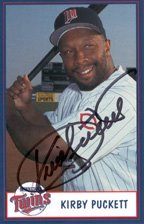In Sunday's New York Times magazine, Michael Pollan takes what might be the most tortured excursion into hunting that I've ever read.
Pollan, who had never hunted before in his life, says he wanted to prepare a meal from the ground up: kill the food, prepare it, eat it. His goal was to experience the full karmic consequences of the food chain.
What followed was a sort of "Gomer Pyle goes hunting" escapade, infused with atavistic thrills, guilt and disgust.
Very few things, least of all hunting, lend themselves to overanalysis. And the article, while it contained some interesting points, had overanalysis in spades.
I grew up hunting squirrels and deer with my dad and brothers. I didn't always look forward to it, because it meant getting up before dawn and heading out into the cold woods to wait for first light. And during deer season there were so many other hunters that it felt a bit like a war zone. That's what made us eventually give it up: walking along just below a ridge line and listening to bullets whizzing overhead. Venison steak just wasn't worth the risk of being shot by morons.
But once the sun came out and it warmed up, hunting was full of simple pleasures. Companionship, for one; the challenge, for another: spotting game, walking quietly, sitting so still that the animals forget you're there, and of course shooting accurately. A walk in the woods on a beautiful fall day, but a walk with a purpose -- something that was very appealing to me as a teenager.
But the ultimate purpose was food, not killing. I've never understood simple sport hunting, killing things for the sake of killing things. But I've always been comfortable about my place atop the food chain. Shooting a squirrel is little different from catching a fish or buying a steak. You catch it, you gut it, you eat it. I see little moral difference between buying a roast in the supermarket and killing the roast myself.
Pollan goes on about how disgusting it was to gut the pig and see its insides, and cites some credible arguments about the evolutionary advantages of disgust. But I think he overprojects from his single experience. The first time I had to gut a fish, it was disgusting. The 50th time, it was routine. When my dad and I gutted a deer for the first time, he pointed out all the organs as we worked. It was a biology lesson, not a moral one.
I wonder if Pollan could write such a lengthy self-examination on fishing, and for some reason I think no. Shooting a pig (as Pollan does) has some moral attraction/repellant for him that catching and gutting a bass would not. But they are the same act, just with different tools. A deer rifle isn't any more or less immoral or mysterious than a fishing pole. But it seems to hold a lot more mystique for people unfamiliar with either. Which leads me to think that Pollan's discomfort has more to do with guns than hunting.
Pollan makes one good point: hunting makes you appreciate where your food comes from. You understand why ancient hunters all over the world considered hunting almost a religious experience, and gave thanks to their quarry for giving up its life so the hunter could live. Supermarkets let us take for granted what perhaps shouldn't be, both because we don't appreciate it and because the hidden nature of the modern food chain gives rise to things like factory farms -- things that produce far worse moral dilemmas than gunning down a mammal.
I haven't hunted since I became an adult, not because of any moral qualms but because of lack of opportunity or abiding interest. I still fish, though, and the reason remains the same: I am an omnivore, and nothing tastes better than fresh-caught fish, lightly breaded and cooked over a fire. And the day spent walking the shore or drowsing in a canoe, line dangling in the water with a worm or casting a lure toward likely hiding spots, is a day of relaxation and being a part of nature, not just an observer of it.
Update: Here's what another blogger thought of Pollan's piece.
Michael Pollan, food chain, hunting, fishing, midtopia

